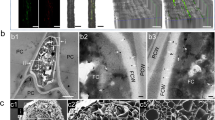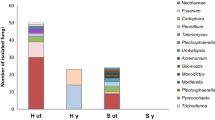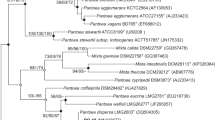Abstract
THE growth requirements of a number of brown-root and white-root disease fungi have already been studied. It is generally recognized that the majority of the Hymenomycetes are partially or totally deficient in thiamine (aneurin, vitamin B1)1.
This is a preview of subscription content, access via your institution
Access options
Subscribe to this journal
Receive 51 print issues and online access
$199.00 per year
only $3.90 per issue
Buy this article
- Purchase on Springer Link
- Instant access to full article PDF
Prices may be subject to local taxes which are calculated during checkout
Similar content being viewed by others
References
Gäumann, E., “Pflanzliche Infektionslehre” (Birkhäuser Verlag, Basel, 1951). Jennison, M. W., Newcomb, M. D., and Henderson, R., Mycologia, 42, 275 (1955).
Altson, R. A., Rep. Rubb. Res. Inst. Malaya, 1949–51, 1 (1953). Pichell, R. J., Pub. Inst. nat. agron. Congo belge, Série Technique, 49, 1 (1956). Newsam, A., Rep. Rubb. Rest. Inst. Malaya, 1952, 58 (1954).
Flück, V., Phytopath. Z., 23, 177 (1955).
Author information
Authors and Affiliations
Rights and permissions
About this article
Cite this article
RIGGENBACH, A. Fomes lignosus, a Pyrimidine-deficient Fungus. Nature 180, 43–44 (1957). https://doi.org/10.1038/180043b0
Issue Date:
DOI: https://doi.org/10.1038/180043b0
This article is cited by
-
Nutritional regulation of basidiocarp formation and mycelial growth of Agaricales
Mycopathologia et Mycologia Applicata (1969)
-
Fomes noxius, a Thiamine-deficient Fungus
Nature (1958)
Comments
By submitting a comment you agree to abide by our Terms and Community Guidelines. If you find something abusive or that does not comply with our terms or guidelines please flag it as inappropriate.



